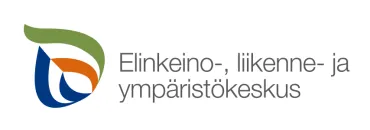In the project, LUT is developing "Plan B operating model", which includes benchmarking of opportunities to learn form previous developments at European level, specially related to (local) structural changes and their effects to the regional developments, situation in the area and appropriate solutions towards better status quo.
An essential part of the development of the operating model during the project is the planning of customer and service paths, the goal of which is to get the target group members on the customer path and stay on it in order to find a new study or job. The tool which is used to support the project is so-called AIDA model, in which the conversion rate between the different stages (awareness, interest, desire and action) is measured, thus giving data for operational level developments and process improvements.
LUT is also involved in developing the DuuniDay of the Future event. The event aims to present the jobs of the future for students and also reciprocally bring the students' ideas, hopes an interest, about future jobs, to the attention of potential future employers.
1.10.2023–30.6.2026
Project funding:
Co-funded by the European Union. Just Transition Fund.

Goals
In accordance with the European Union's funds goal to mitigate the harmful effects of climate change, the project seeks to obtain its results from the field of low-carbon and modern digital operating models. The project specially aims to reach people in the region who have been most affected by the recent changes in South Karelia, and at the same time promote a balanced socio-economic transition.
Many industries in the region have experienced recent years challenges, hampering the already challenging employment situation and making it even more difficult to find replacement work. The business environment changes have been challenging e.g. for young people (18-29 years) and over 55, and entrepreneurs have not been immune from these changes either.
The goal of the project is to increase identification of persons own true (and sometimes hidden) skills, especially for those who have faced a change situation and to help them find training opportunities, as well as the identification / acknowledgment of training needs.
The goal of the project is to increase the education level of the target group and support employment and efforts taken towards employment. The Plan B project supports and promotes the recognition of their own skills, re-employment, and access to an education path for members of the target group who have fallen into a weak labor market situation.
The project arouses interest in new fields that will offer jobs in the future, supports the raising of the education level of young people and retraining for fields that need labor and completely new fields. The project aims to meet more than 200 representatives of the target group.
The project will carry out a benchmarking review of European example areas in a similar situation / that have survived / that have overcome the changes. As a result of the project, the people who participated have recognized their own competence and their need for competence, and they have been supported towards study and work positions. As a result, a PlanB operating model is produced, which will be used by operators in the area.
Contact information

Partners


